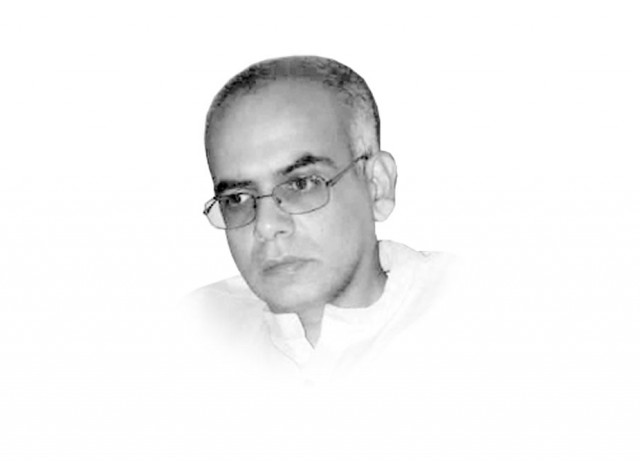Biased coverage of a tainted world cup in Qatar
Qatar has become the subject of harsh criticism, especially for its inhumane treatment of migrant workers

The most expensive world cup ever, and the first one to be held in the Middle East, has been mired in controversy. On the one hand, Qatar has become the subject of harsh criticism, especially for its inhumane treatment of migrant workers who helped materialise the small but energy-rich nation’s ambition of hosting the sporting mega-event. Conversely, there are growing objections to western criticism of Qatar, which is instead being interpreted as a sign of racism, Orientalism, and outright Islamophobia. A closer look at both sides of this polarised debate reveals that there is an element of truth to both sets of arguments.
Twelve years ago, football’s global governing body, FIFA, announced that Qatar would be given the privilege of hosting the 2022 world cup. FIFA’s decision was surprising. Besides evoking suspicions of foul play, some evident reasons were cited for why Qatar seemed an inappropriate choice as a world cup host. Qatar lacked the infrastructure needed to host such an enormous event. Moreover, the extreme heat during the summer months, when the world cup is usually held, was seen as another major problem. Qatar, however, managed to convince FIFA to move the world cup matches to the winter months, and embarked upon an astonishingly ambitious project to build the necessary infrastructure.
Besides a plethora of stadiums and hotels, Qatar has managed to build a new metro system, expand its international airport, and construct an entire city north of Doha to host the soccer matches. Given the miniscule population of the country, already heavily dependent on foreign workers, Qatar had to import an army of construction workers from South Asian states like Bangladesh, Nepal and India — and to a lesser extent from Pakistan.
According to Forbes, Qatar has invested $220 billion to stage the world cup. However, the manual labourers who toiled for over a decade to build this infrastructure have hardly seen any of the benefits of this lavish spending. Exploited by recruitment agencies at home, and by contractors within Qatar, these poor workers were subjected to harsh living and working conditions, which have reportedly resulted in untold personal suffering, work related injuries, and even deaths.
Under increasing pressure, Qatar did amend some of its draconian labour laws. It finally banned the Kafala system in 2018, which had bound hapless workers to exploitative employers via the threat of expulsion. Yet, migrant workers have allegedly continued being threatened and exploited within their workplaces. Qatar passed a minimum wage law, but this law merely promised a measly $275 per month to migrant labourers, many of whom had taken on a debt of thousands of dollars to pay commission agents to get them a job in Qatar. Moreover, for nearly a decade leading up to the passage of this new law, the average migrant labourer’s wage was estimated to be even lower. Many migrant workers have also complained of delayed payments and of still not having been paid.
Alongside this callous treatment of migrant labourers, the Qatari government’s unwillingness to respect gender rights, and the apparent use of affluence and outright bribery to secure the world cup, have received significant attention within international media. While some of this reporting is well done, much of the western coverage is problematic, and often exhibits glaring double standards. Consider the racist caricatures in the weekly French newspaper, Le Canard enchaine, which published insulting depictions of angry Qatari soccer players with long beards brandishing all sorts of weapons. Or the BBC not screening the opening ceremony, whereas with all the human rights concerns with the Olympics in China, no such gesture was made. Moreover, the attention being given to Qatar’s treatment of migrant workers is also ironic when it is not coupled with acknowledgment of their own brutal colonising histories, and presently problematic attitudes towards migrants.
The concern for human rights should not be sensationalised or used to further existing biases. Such unfair criticism will only enable countries like Qatar to deflect blame instead of taking a deeper look at how best to deal with the plethora of migrant labourers who will continue to work and reside in the country well after the world cup is over.
Published in The Express Tribune, December 16th, 2022.
Like Opinion & Editorial on Facebook, follow @ETOpEd on Twitter to receive all updates on all our daily pieces.














COMMENTS
Comments are moderated and generally will be posted if they are on-topic and not abusive.
For more information, please see our Comments FAQ